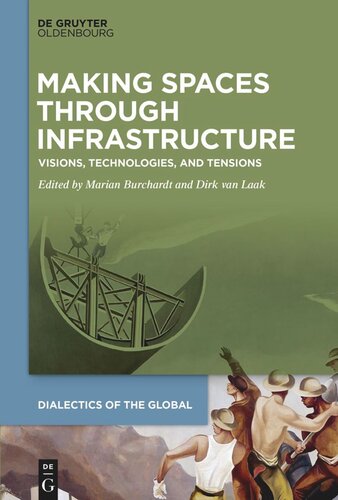

Most ebook files are in PDF format, so you can easily read them using various software such as Foxit Reader or directly on the Google Chrome browser.
Some ebook files are released by publishers in other formats such as .awz, .mobi, .epub, .fb2, etc. You may need to install specific software to read these formats on mobile/PC, such as Calibre.
Please read the tutorial at this link: https://ebookbell.com/faq
We offer FREE conversion to the popular formats you request; however, this may take some time. Therefore, right after payment, please email us, and we will try to provide the service as quickly as possible.
For some exceptional file formats or broken links (if any), please refrain from opening any disputes. Instead, email us first, and we will try to assist within a maximum of 6 hours.
EbookBell Team

4.8
84 reviewsInfrastructures are fundamental means through which societies create spaces, but little is known about the precise ways in which this occurs. How have infrastructures animated certain understandings of space? How do infrastructures stabilize, or undermine, the spatial formats in which we live, which shape our everyday practices and which regulate access to services and resources? And, conversely, how do spaces frame the ways infrastructural provision is organized? How do existing spaces shape infrastructural development and the scope and forms of access to vital services such as transport and water? In this volume, historians and sociologists draw on a range of fascinating case studies and provide compelling answers to these questions. Exploring, among others, the provision of irrigation water in nineteenth-century Los Angeles, the invention of airport transit zones, and the infrastructural practices of homeless people in Berlin, the book demonstrates how the making of spaces through infrastructure is deeply political. Intent on revealing uneven geographies of provision and hierarchies of access, the contributors highlight how infrastructures are products of global entanglements.